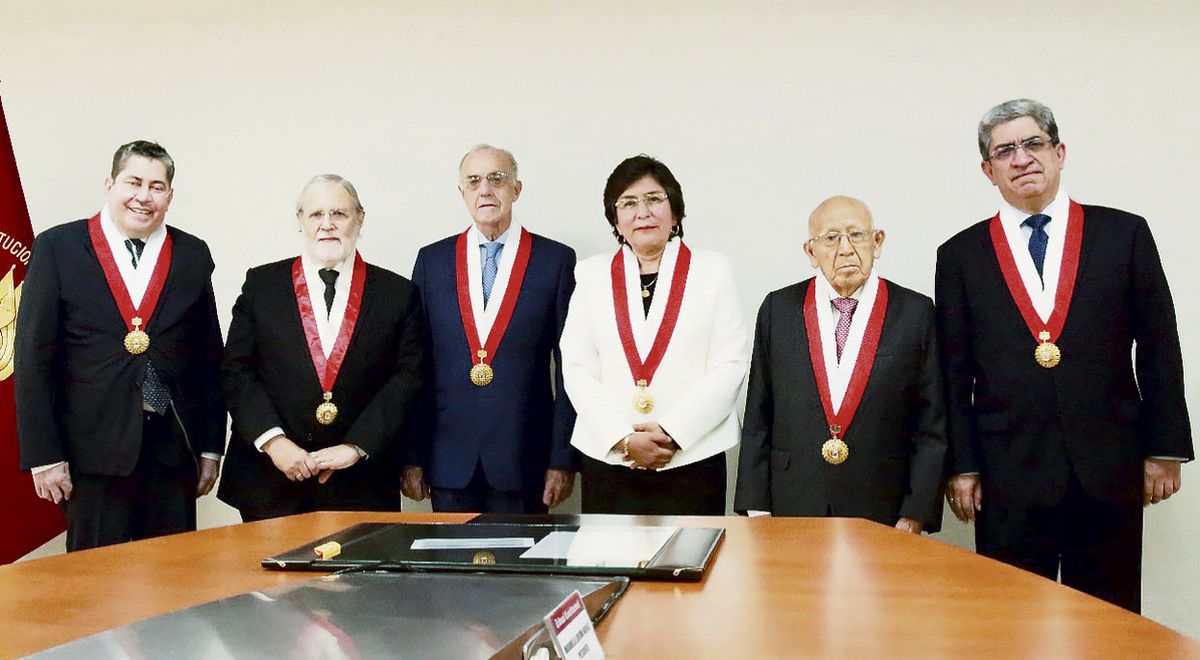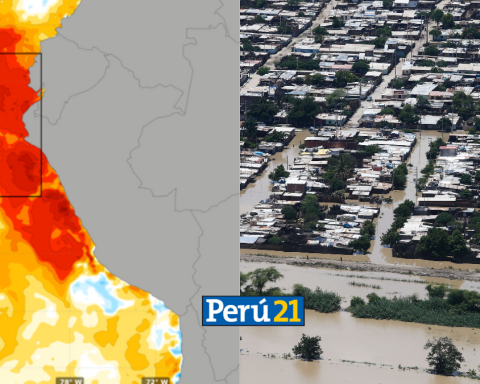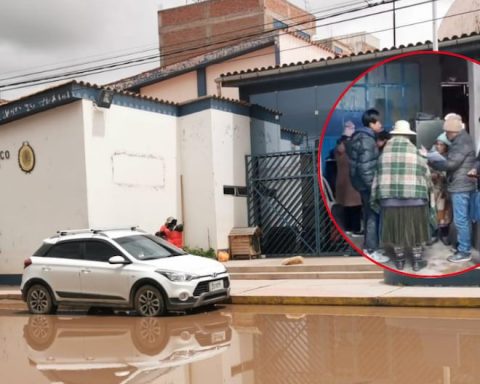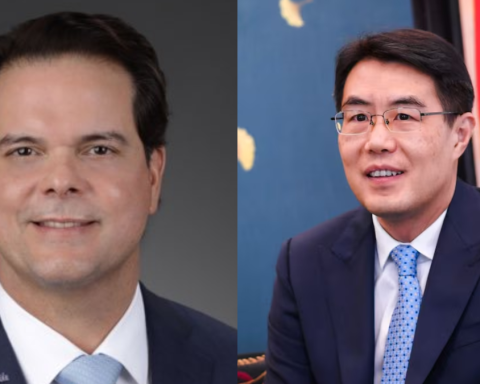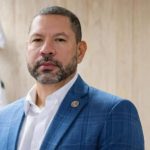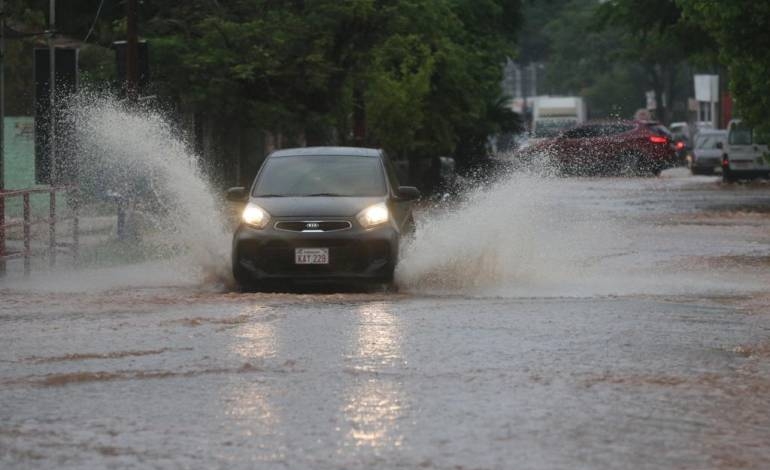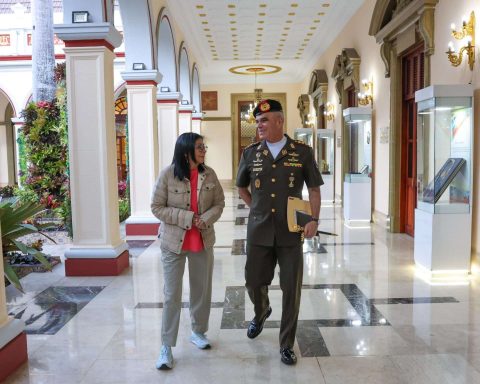The conflict between Executive and the Congress by the law of authentic interpretation of the question of confidence was up for vote in the Constitutional Court (CT). Yesterday was the hearing for the parties involved to defend their positions.
The legal defense of Parliament, made up of the constitutionalist Hannibal Quiroga and the former magistrate Victor Garcia Takesdetailed his real intentions so that this norm under discussion is declared constitutional: They say that this will correct the previous rulings of the Court and that it will avoid possible arbitrariness by the Government.
The thing is, how denounced the attorney of the Executive Luis Huertathe lawyers of the Legislative seek that the TC disregard its previous sentences on this subject, altering its jurisprudence.
YOU CAN SEE: Qualify with zero publications of applicant to magistrate of the Constitutional Court
In 2018, the TC ruled against a modification of the Congress regulations that sought to regulate the issue of trust because it affected the balance of powers. With the same argument, the following year the Court ruled in favor of the Executive in a competence claim of the Parliament against its dissolution, executed by the then president Martín Vizcarradue to a second confidence issue denial.
These are the two precedents in which the TC addressed this point and which were used in the allegations of vegetable plot.
At the hearing, Quiroga argued that jurisprudence evolves according to reality. “That sentence cited by the Executive has not taken into account the pandemic,” he said.
YOU CAN SEE: Castillo on the claim of unconstitutionality: “I don’t think the TC decides against it, I have faith”
The reason for the trust issue law, added Quiroga, is to prevent a closure of Congress like the one that took place in the Vizcarra government and that, in the five or six months of the constitutional interregnum, by means of an emergency decree, a constituent assembly be convened. “Since there is no Congress to control it, it will not be possible to stop it; then we are going to enter into constitutional chaos,” he maintained.
The other lawyer for Congress, Víctor García Toma, argued that “within the structure of the State, the first interpreter of the Constitution is Congress.” This statement surprised the prosecutor, because for the Government, the highest interpreting body is the Constitutional Court.
But García Toma continued. “It has been alluded to the existence of a jurisprudence of the TC. This jurisprudence has problems: it does not comply with having foreseen the consequences”, he emphasized, referring to the fact that, from the point of view of the defense of Congress, the lack of delimitation of the question of trust led to the factual denial used by Vizcarra for the dissolution of the Legislative.
YOU CAN SEE: Vásquez: TC should resolve our lawsuit objectively and without political calculations
Executive Response
Attorney Luis Huerta responded by questioning Quiroga appealing to the fact that the jurisprudence of the TC is relative to the context and García Toma saying that the law of interpretation of the matter of trust seeks to correct the previous resolutions of the Court.
Likewise, he protested that García Toma questions such precedents. “He has indicated that what the norm seeks is to correct the error of the TC jurisprudence, amend the plan and tell the Court that it is wrong and that the magistrates who signed it are wrong,” he denounced.
Huerta also recalled that the trust issue law implied a constitutional reform, but in Congress they opted for an ordinary norm. For the attorney, the law of interpretation arises when there is doubt about an issue. “But in the case of the question of trust, the doubts were submitted to the TC,” he stressed.
YOU CAN SEE: Distrust within Peru Libre regarding the decision of the TC on the law against the referendum
The case was up for vote. The rapporteur magistrate is Eloy Espinosa-Saldaña. The declaration of unconstitutionality of this law depends on five members of the Plenary voting in favor of it. There are currently six magistrates in the TC.
More power. Congress seeks to subtract powers from the Executive. Photo: diffusion
Questions and observations
The magistrate Eloy Espinosa-Saldana He asked the attorney Luis Huerta if the law of the question of trust should be by constitutional reform. Huerta answered yes, since it is an issue that has to do with the balance of power.
The constitutionalist Omar Cairo clarified that by emergency decree it is impossible to call a constituent assembly, in reference to the arguments presented by Aníbal Quiroga.
YOU CAN SEE: Dina Boluarte: “We are going to go to the TC so as not to think about raising a question of trust”
reactions
Luis Huerta, attorney for the Executive
“García Toma has pointed out that what the norm seeks is to correct the error of the jurisprudence of the TC, amend the plan and tell the Constitutional Court that it is wrong.”
Aníbal Quiroga, congressional lawyer
“The jurisprudence of the Constitutional Court (TC) is evolving and is produced on a subsequent reality. That ruling cited by the Executive did not take the pandemic into account.”
